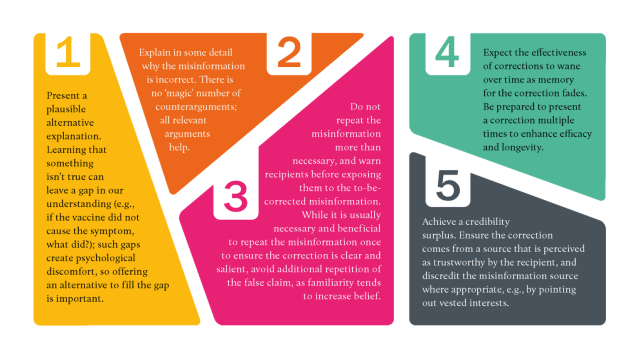Over the last few years, we have seen a series of recent far-right terrorist attacks which demonstrate that extreme conspiratorial worldviews can mobilise individuals towards extremist violence. For instance, the Pittsburgh synagogue shooting in October 2018, the Christchurch terrorist attack, which left 51 people dead at a mosque and community centre in New Zealand in March 2019, the attack targeting Hispanic people at a Walmart in El Paso, Texas, in August 2019 as well as the more recent shooting in Buffalo, New York, which saw 10 Black people killed in a grocery store people in May 2022. These events were all heavily influenced and motivated by far-right conspiracy theories such as the ‘great replacement’ or ‘white genocide’. This relationship has been further highlighted by the U.S. Capitol attack on January 6, 2021, which demonstrated an increasing synergy between extremist groups and QAnon adherents engaging side-by-side in anti-government violence.
Additionally, there has been an increasing convergence between far-right extremists, anti-vaxxers as well as conspiracy theorists within online spaces, which has led to threatening and violent behaviours towards politicians, health professionals and the media and thus, further demonstrates the radicalising effects of conspiracy beliefs.
We tested the effects of specific group and social-environmental influences on far-right extremist attitudes and we examined whether these relationships were amplified in the presence of conspiratorial mindsets.
In June 2019, we conducted a German nationally representative telephone survey with 1502 participants. This was achieved through a systematic and controlled approach of a multi-stratified probability sample (Random-Digit-Dialling) in the dual-frame mode (landline telephone-households and mobile phone users).
38.3% of respondents showed agreement on average across all conspiracy mentality items.
We measured a wide range of different social-environmental and group-level factors, such as exposure to extremist peers, perceived threats to the ingroup and perceptions of group-based injustice. In addition, we asked each participant about the degree to which they agreed with:
Five generic themes that re-occur in different conspiracy theories
Six statements tapping into seven different dimensions:
Support for a right-wing dictatorship
Chauvinism
Xenophobia
Anti-Semitism
Social Darwinism
Islamophobia
Downplaying the crimes of National Socialism
All items were measured on 7-point Likert scales, where ‘1’ meant ‘I strongly disagree’ and ‘7’ meant ‘I strongly agree’. Responses of ‘somewhat agree’, ‘agree’ and ‘strongly agree’ were considered to show an ‘agreement’ with the statements. We further estimated mean scores (m), for each item and also calculated an average score for all individual scale items combined where appropriate (e.g., all items measuring far-right extremist attitudes), ranging from 1 – 7.
The following table presents sample of statements that we measured, together with the percentage who agreed and mean scores.
Conspiracy Mentality |
|
There are secret organizations that greatly influence political decisions | 53% (m = 4.4) |
Events which superficially seem to lack a connection are often the result of secret activities | 36.1% (m = 3.7) |
Government agencies closely monitor all citizens | 36.4% (m = 3.7) |
Far-Right Extremist Attitudes |
|
National Socialism also had its positives | 9.9% (m = 1.9) |
Jews bear some of the blame for their persecutions during the Third Reich | 6.6% (m = 1.7) |
Foreigners only come here to exploit our welfare state | 23.1% (m = 3.0) |
38.3% of respondents showed agreement on average across all conspiracy mentality statements (m = 4.3), whereas on average across all far-right extremist attitudes items 5.3% (m = 2.6) indicated support for far-right extremism.
We ran a series of moderation analyses, which determine whether the relationship between a predictor and an outcome depends on (i.e., is moderated by) the values of a third variable. A significant moderation effect indicates that the nature of the relationship between the predictor and the outcome changes, depending on the values of the moderating variable, e.g., when looking at low levels, average/mean levels, or high levels of the moderator.
In our study, we examined the moderating effects of different levels of conspiratorial beliefs (i.e., low, average, and high levels) on the nature of the relationship between the socio-environmental and group-level predictor variables and our outcome variable, far-right extremist attitudes. In other words, we tested whether varying levels of conspiracy thinking would potentially amplify or dampen the influence of:
Exposure to extremist peers,
Perceived threats to their ingroup, or
Perceptions of group-based injustice on far-right extremist attitudes.
We found that these three factors have particularly strong effects on support for far-right extremist attitudes amongst those individuals who also demonstrate high levels of conspiratorial mindsets. This also indicates that the effects of these three factors are all contingent on individuals’ levels of conspiratorial thinking, whereby the harmful effects are most pronounced amongst those with strong conspiracy beliefs.
Conversely, when conspiratorial thinking is low or average, there is a significantly reduced likelihood of support for far-right extremist ideologies. Importantly, low levels of generic conspiracy thinking are able to dampen the risk effects on far-right extremism, despite individuals being exposed to extremist peers, experiencing threats to the ingroup and demonstrating high levels of perceptions of group-based injustice.
The findings demonstrate that exposure to extremist peers, perceived threats to the ingroup, perceptions of group-based injustice and conspiratorial thinking all independently predict increased far-right extremist attitudes.
When conspiratorial thinking is low or average, there is a significantly reduced likelihood of support for far-right extremist ideologies.
However, the strength of the relationships between the socio-environmental and group-level risk factors and far-right extremist attitudes depends upon individual levels of conspiratorial thinking.
Consistent approval of conspiracy mentality statements was around seven times more prevalent than consistent support for far-right extremist attitudes. This shows the former, by itself, is an insufficient explanation of the latter. Other factors must be at play.
Our results show that group- and social-environmental risk factors become particularly harmful when they co-occur with conspiratorial thinking - it is the interactive effect of these factors which significantly increases support for far-right extremist ideologies.
Yet, these findings also suggest that certain individual level factors (e.g., low levels of conspiracy thinking) can exert interactive protective effects by dampening, mitigating, or nullifying certain risk effects upon far-right extremist attitudes. From an intervention perspective, this may be particularly relevant when working with people ‘at-risk’ or those vulnerable to radicalisation by considering those factors which seem to play a functional role in amplifying or dampening existing vulnerabilities.
Collectively, the findings demonstrate the importance of acknowledging conditional and contextual factors to capture a much more nuanced picture of this complex relationship.
Dr Bettina Rottweiler is a Postdoctoral Researcher in the Department of Security and Crime Science at University College London. Her research examines the underlying risk and protective factors for different violent extremist outcomes for use in research and practice, with a specific focus on the functional role of conspiracy beliefs and violent misogyny within violent extremism.
Paul Gill is a Professor of Security and Crime Science at University College London. Prior to joining UCL, Professor Gill was a postdoctoral research fellow at the International Center for the Study of Terrorism at Pennsylvania State University. He has over 80 publications on the topic of terrorist behaviour.
Read more
Hebel-Sela, S., Hameiri, B., & Halperin, E. (2022) The vicious cycle of violent intergroup conflicts and conspiracy theories. Current Opinion in Psychology, 47, 101422. https://doi.org/10.1016/j.copsyc.2022.101422
Jolley, D., Marques, M. D., & Cookson, D. (2022) Shining a spotlight on the dangerous consequences of conspiracy theories. Current Opinion in Psychology, 47, 101363. https://doi.org/10.1016/j.copsyc.2022.101363
Obaidi, M., Kunst, J., Ozer, S., & Kimel, S. Y. (2022) The “Great Replacement” conspiracy: How the perceived ousting of Whites can evoke violent extremism and Islamophobia. Group Processes & Intergroup Relations, 25(7), 1675-1695. https://doi.org/10.1177/01461672231167694
Rottweiler, B. & Gill, P. (2022) Conspiracy beliefs and violent extremist intentions: The contingent effects of self-efficacy, self-control and law-related morality. Terrorism and Political Violence, 34(7), 1485-1504. https://doi.org/10.1080/09546553.2020.1803288
Copyright Information
p.9: © Alexander | stock.adobe.com
p.11: © Becker1999 | Flickr








